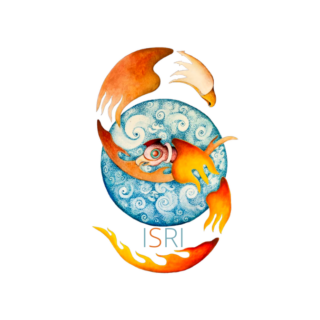 The Indigenous Science Research Institute is a forum for research, knowledge exchange, and learning.
The Indigenous Science Research Institute is a forum for research, knowledge exchange, and learning.
The projects of the Institute are set to achieve a variety of goals:
- Strengthen the worldwide network of Indigenous knowledge keepers through ongoing exchanges.
- Convene and publicize existing Indigenous science knowledge.
- Establish the philosophical framework for the practice of an Indigenous science of the synergistic third way, where ontology, epistemology, and ethics are inseparable.
- Facilitate dialogues between Indigenous and Western scientists through conferences and research projects.
- Conduct specific research projects initiated by Indigenous communities to address biodiversity and the climate crisis.
- Develop educational research and applied projects that address the optical delusion in non-indigenous people.
_________________________________________________________________________________________________
Central to the practice of Indigenous science is the understanding of the interconnectedness of life—everything is part of a relationship; it is a holistic science and drawing on all senses and human qualities, with the researcher an integral part of the research process; in Indigenous science all of nature is considered intelligent and alive; its goal is to catalize states of balance, i.e. natural states of well-being and health. Mental, emotional, somatic, and spiritual aspects of being in the world are part of an integrative process of research and practice. Based in a holistic understanding of natural laws, Indigenous science facilitates human capacities to be a responsive and responsible part in the balancing and healing interactions on Earth. Indigenous science furthers peace, justice, and respect for all aspects of life.
Western science, in its most advanced approaches, has begun to overcome reductionist views which separate researchers from the “objects” of their research. Instead it has begun to look at knowledge from a systemic and holistic perspective, even acknowledging mysterious or spiritual dimensions of reality and our experience of them. Quantum field theorists have asserted, based on their research, that we live in a web of events; reality is a field of interactions, each entity exists in relation to something else; in research the methodological intra-actions between observations and what is observed make entities determinate, that is: they emerge as phenomena in research; the researcher is an inevitable and integral part of understanding reality; mind has been identified down to the smallest levels of our world.
Acknowledging and building upon these apparent similarities between Indigenous science and Western science creates a convergence between the two. It opens up a third synergistic way of knowing and being that can lead us into deep recognition and understanding of the fundamental laws of life. The resulting transdisciplinary knowledge is a thick weave that overcomes disciplinary limitations as well as the limitations of interdisciplinary dialogue. One hundred years ago Albert Einstein called for such a third synergistic way calling it “the one issue of true religion”; he lamented the pathological “optical delusion” of separateness in the consciousness of human beings. We are at a moment in history when the possibility of overcoming this optical delusion emerges from the convergences that facilitate a synergistic third way of knowing. The meeting of Eagle and Condor catalyzes and intensifies this convergence of Indigenous and Western science. It naturally facilitates effective responses to our present emergencies and the promotion of peace.
The Indigenous Science Research Institute was founded by Dr. Apela Colorado as a project of the Worldwide Indigenous Science Network (an NGO established by her in 1989). The Institute is an important nexus in the planetary network of sacred sites with its guardians, Indigenous knowledge keepers, and shamans. It is an inclusive space, shielded from the ongoing discriminations against Indigenous knowledge. Here the expertise of Indigenous knowledge keepers can justly make contributions to our common weal. The Institute is a coordinating, nurturing, and generative node in an evolving network of consciously placed humans who have dedicated their lives, informed and supported by Indigenous knowledge, to the creative work of healing trauma, re-balancing injustices, bearing witness, creating transdisciplinary syntheses, 4 and mutual dialogical exploration and evolution. This synergistic convergence is a humble conversation in which we humans can live up to our responsibilities and develop balancing and nurturing actions that address the red alert of the climate crisis and other catastrophic trends.